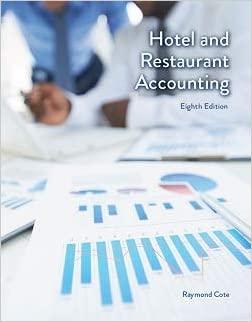Charles E. Bennett, age 64, will retire next year and is trying to decide whether to begin collecting his Social Security benefits at that time. His monthly benefits will increase if he defers his starting date for the benefits. He has asked you to estimate how much his income tax will increase as a result of collecting Social Security. Charles and his wife Bernice B., file a joint return, have no other dependents, and claim the standard deduction. Their only income other than the Social Security benefits are: Interest and dividends $6,000 Taxable pension $40,000 The Social Security benefits for the year would be $12,000. Enter all amounts as positive numbers. a. Complete Worksheet 1, Figuring Your Taxable Benefits, included in IRS Publication 915 to determine the taxable portion of this couple's taxable Social Security benefits the publication includes a blank worksheet). . Worksheet 1. Figuring Your Taxable Benefits Keep for Your Records Before you begin: If you are married filing separately and you lived apart from your spouse for all of 2018, enter "D" to the right of the word "benefits" on Form 1040, line 5a. Do not use this worksheet if you repaid benefits in 2018 and your total repayments (box 4 of Forms SSA-1099 and RRB-1099) were more than your gross benefits for 2018 (box 3 of Forms SSA-1099 and RRB-1099). None of your benefits are taxable for 2018. For more information, see Repayments More Than Gross Benefits. If you are filing Form 8815, Exclusion of Interest From Series EE and I U.S. Savings Bonds Issued After 1989, do not include the amount from line 2b of Form 1040 on line 3 of this worksheet. Instead, include the amount from Schedule B (Form 1040), line 2 1. Enter the total amount from box 5 of ALL your Forms SSA-1099 and RRB-1099. Also enter this amount on Form 1040, line 5a ... 2. Multiply line 1 by 50% (0.50) 1. 2. 3. 4. 3. Combine the amounts from: Form 1040, lines 1, 2b, 3b, 4b, and Schedule 1 (Form 1040), line 22. 4. Enter the amount, if any, from Form 1040, line 2a 5. Enter the total of any exclusions/adjustments for: Adoption benefits (Form 8839, line 28), Foreign earned income or housing (Form 2555, lines 45 and 50, or Form 2555-EZ, line 18), and Certain income of bona fide residents of American Samoa (Form 4563, line 15) or Puerto Rico. . . 5. 6. Combine lines 2, 3, 4, and 5. 6. 7. Enter the amounts from Schedule 1 (Form 1040), lines 23 through 32, and any write-in adjustments you entered on the dotted line next to Schedule 1 (Form 1040), line 36 other than any amounts identified as "DPAD".. 8. Is the amount on line 7 less than the amount on line 6? No. STOP None of your social security benefits are taxable. Enter-O. on Form 1040, line 5b 7. Yes. Subtract line 7 from line 6 8. . 9. If you are: Married filing jointly, enter $32,000 Single, head of household, qualifying widow(er), or married filing separately and you lived apart from your spouse for all of 2018, enter $25,000. Note. If you are married filing separately and you lived with your spouse at any time in 2018, skip lines 9 through 16; multiply line 8 by 85% (0.85) and enter the result on line 17. Then go to line 18. 9. No. 10. 10. Is the amount on line 9 less than the amount on line 87 STOP None of your benefits are taxable. Enter -0 on Form 1040, line Sb. If you are married filing separately and you lived apart from your spouse for all of 2018, be sure you entered "D" to the right of the word "benefits" on Form 1040, line 5a. Yes. Subtract line 9 from line 8. 11. Enter $12,000 if married filing jointly; $9,000 if single, head of household, qualifying widow(er), or married filing separately and you lived apart from your spouse for all of 2018 12. Subtract line 11 from line 10. If zero or less, enter-O- 13. Enter the smaller of line 10 or line 11 14. Multiply line 13 by 50% (0.50).. 15. Enter the smaller of line 2 or line 14 .. 11. DANE 12. 13. 14. 15. 16. Multiply line 12 by 85% (0.85). If line 12 is zero, enter -0. 16. 17. Add lines 15 and 16. 17. 18. 18. Multiply line 1 by 85% (0.85) 19. Taxable benefits. Enter the smaller of line 17 or line 18. Also enter this amount on Form 1040, line 5b DIA 19. TIP If you received a lump-sum payment in 2018 that was for an earlier year, also complete Worksheet 2 or 3 and Worksheet 4 to see if you can report a lower taxable benefit b. What is the taxable portion of the $12,000 in Social Security benefits? Check My Work










